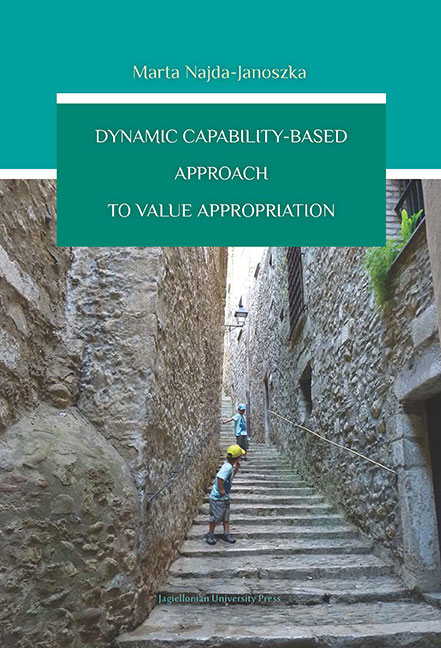Book contents
5 - Research methodology
Published online by Cambridge University Press: 20 December 2017
Summary
Categories guiding the analysis of the study are justified theoretically in the previous Chapters 2, 3, and 4. However, a high quality research requires also a clear explanation of methodological choices made. Proper application of scientific procedures enables translating obtained evidence into original contribution to the existing stock of knowledge. Acknowledging the importance of research methodology it is worth recalling the words of Karl Pearson (1900, p. 12), who underlined that “[as] the field of science is unlimited (…) the unity of all sciences consists alone in its methods, not its material.” Given that to the best of author's knowledge there is no published analysis approaching value appropriation with the dynamic capabilities framework and facing the fact that multidimensional concept of dynamic capabilities generates considerable challenges for empirical research (Zahra et al., 2006; Pavlou & El Sawy, 2011), ensuring methodological rigour is a prerequisite for a proper accommodation of the complexity of investigated problem. Therefore, the aim of this Chapter is to present not the mere steps adopted in studying research problem, but primarily the logic behind them, remembering that “if (…) work gives a description of phenomena that appeals to his imagination rather than to his reason, then it is bad science” (Pearson, 1900, p. 10). Hence, the Chapter starts by discussing the philosophical underpinnings of the study, since adopted philosophical stance implies far-reaching consequences with regard to the used methodology. After that, the research design of the study is introduced. It embraces the main assumption, objectives of the study, research questions, used research method and description of deployed research procedure. Given the choice of qualitative approach and multi-case design research, the next section presents the criteria used for theoretical sampling. A brief description of resulting set of five case studies is followed by an exhaustive explanation of methods used for gathering data. Recognizing the challenges concerned with generalization from the case study research, the final section provides a thorough description of the research technique used for data analysis.
PHILOSOPHICAL UNDERPINNINGS
Approaching a new area of scientific exploration with an aim to explain links not addressed before (Gilbert, 2005), requires a thoughtful choice of an appropriate paradigm to ensure a high quality research. The importance of that decision stems from the fact that each paradigm represents a distinct yet cohesive system of ontological, epistemological and methodological elements.
- Type
- Chapter
- Information
- Dynamic Capability-Based Approach to Value Appropriation , pp. 129 - 144Publisher: Jagiellonian University PressPrint publication year: 2016



